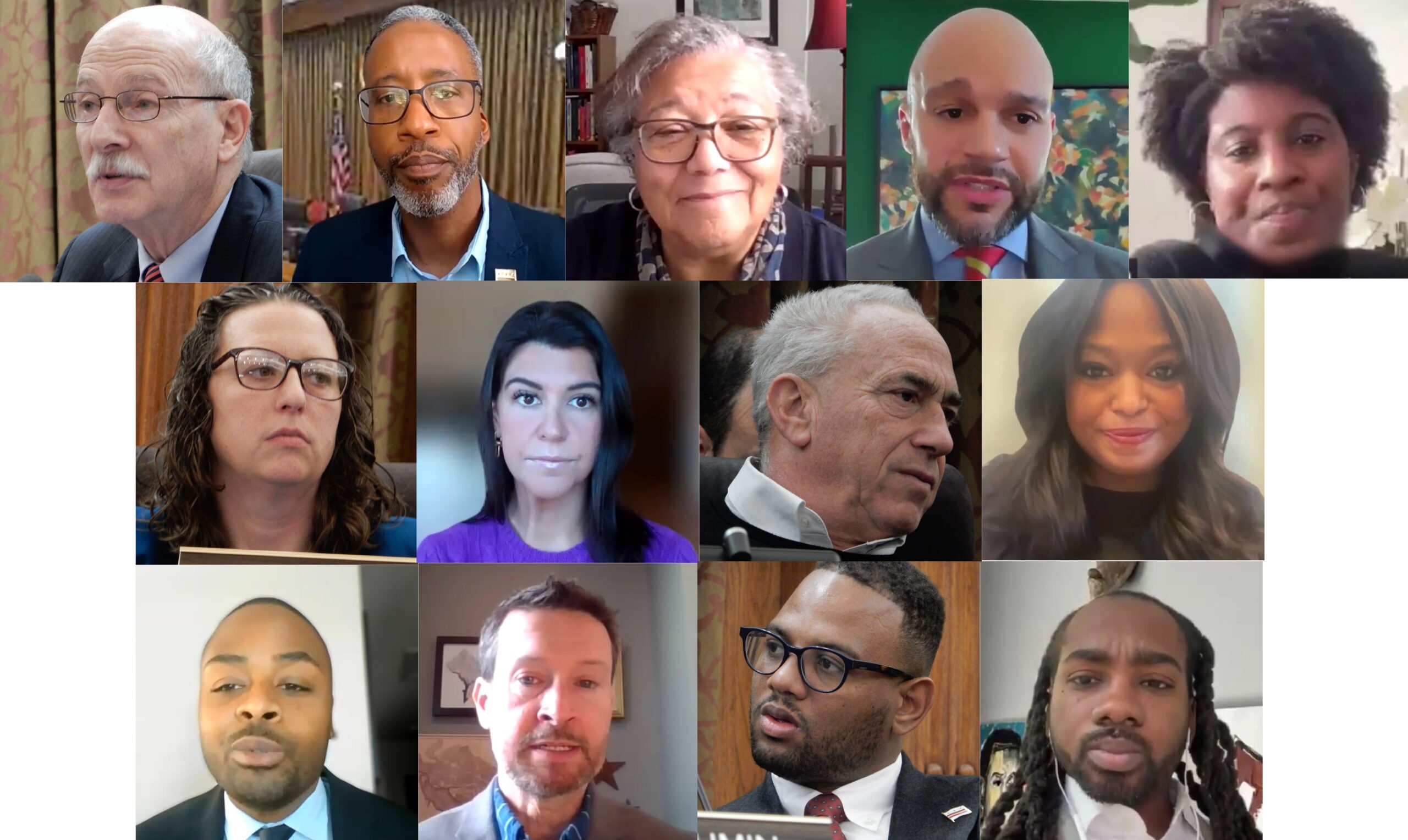Jumping January: Following Swearing-In Ceremony, Council Period 26 Kicks Off With Inaugural Legislative Meeting

January has to cool its jets. Or at a minimum, it has some explaining to do.
Between previously-scheduled events (like New Year’s, the certification of the Presidential election results, and the upcoming Inauguration) and those that were less expected (a snowstorm, a state funeral for President Jimmy Carter, a land transfer for RFK Stadium, and a years-in-the-making playoff appearance for the Commanders), January is clearly trying to squeeze a year’s worth of news into a single month.
Intermingled with these events, January is also a consequential month from a Council perspective. In odd-numbered years, January 2, in and of itself, is always a handful. The Home Rule Act requires that any Councilmembers elected the preceding November (and the mayor, in mayoral election years) be sworn into office prior to noon on January 2. Immediately upon the completion of their swearing-in ceremony, Councilmembers leave the Convention Center and beat feet towards the John A. Wilson Building, where an Organizational Meeting is held.
While the Council sequentially numbers its Legislative Meetings within each two-year Council Period, the Organizational Meeting essentially functions as Legislative Meeting Zero. It is at this meeting that the Council approves its rules, committee structure, and officers for the Council Period. This time around, the Organizational Meeting also served as the dais debut for newly-elected Ward 7 Councilmember Wendell Felder. The Organizational Meeting also marked the first time in exactly eight years that Vincent Gray was not a current elected official.
Upon completion of the Organizational Meeting, the Councilmembers made their way back to the Convention Center for the swearing-in of State Board of Education members, the members of the statehood shadow delegation, and hundreds and hundreds of Advisory Neighborhood Commissioners, to whom they traditionally swear the oaths of office.
Just five days later, the Council would meet for its first Legislative Meeting of Council Period 26, officially inaugurating Year 51 of Home Rule for the District of Columbia. The agenda at this first meeting is always limited, since only certain categories of legislation can survive the end of the prior Council Period, and only certain categories of legislation can come up for a vote so early in a new Council Period.
One measure approved at the meeting was the approval of the much-anticipated contract between the Washington Teachers Union and DC Public Schools. This new contract builds upon the 2023 approval by the Council of the long-overdue prior contract, passed three and a half years into the four-year term it covered. The new contract, covering Fiscal Years 2024 to 2028, provides for a four percent bonus in FY 2024, a two percent wage increase in FY 2025, a three percent wage increase in FY 2026, a three percent wage increase in FY 2027, and a four percent wage increase in FY 2028. The contract also includes optical, dental, and legal benefit improvements, additional morning planning time for all teachers, and extra planning time for Special Education, English as a Second Language, and Cooperative teachers.
Also approved at the most recent meeting was a clarifying emergency measure, considered necessary by the Executive but redundant by the Council, stating that while existing boiler systems in government buildings cannot be completely replaced with new fossil fuel-combusting systems, such existing systems can in fact legally be repaired. Although by the Council’s interpretation, such repairs were never challenged by the the laws presently in effect, by passing the requested emergency measure, the Council ensures that the legal responsibility for any extended breakdowns of school and other heating systems does not lie with the Council, and that we are no legal impediment to such action.
A final measure passed at the most recent meeting was a temporary bill covering the final phase of the Council’s two-year legislative promise, first made during the times of highest inflation in 2023, to limit rent increases for rent-stabilized apartments. The bills mandated that seniors and renters with disabilities in such units would face, at a maximum, a four percent increase across one year, or eight percent across two years. All other residents of rent-stabilized units would face maximum increases of six percent in one year, and twelve percent across both years. In order for the legislation to be in effect for the intended full two years, passage of a final temporary version of the bill was required.
Unlike the end of the prior Council Period, when the impending deadline of the expiring two-year legislative cycle necessitated a pace of two monthly Legislative Meetings throughout the final months of 2024, the Council expects to meet for just one Legislative Meeting a month in the early months of 2025. The next scheduled Legislative Meeting will be held on February 4.